IPA Presidents Biographies

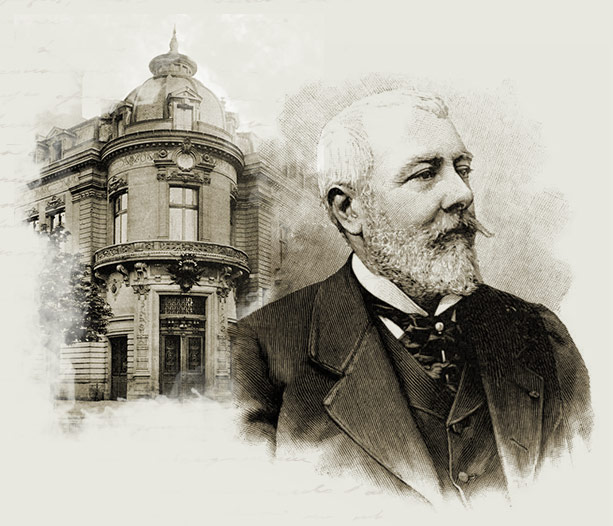
1896: Georges Masson (1839-1900), France
Taking over Victor Masson et Fils from his father, Georges Masson grew the publishing house to cover professional scientific periodicals and the 100 volumes of the Dictionnaire encyclopédique des sciences médicales. He was also President of the Cercle de la Librairie.
More information:
Le Droit D’auteur (WIPO archive)
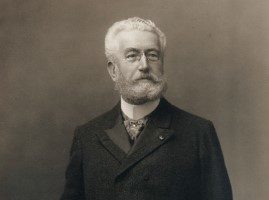
1897: Emile Bruylant (1839-1926), Belgium
Emile Bruylant took over Bruylant–Christophe et Cie from his father, Jean Baptiste. Continuing to focus on legal books, he changed the company name to Etablissements Emile Bruylant in 1907 and ran it alongside Ernest Vandeveld. Both Bruylant and Vandeveld were Presidents of the Belgian Cercle de la Librairie, Vandeveld was a co–founder of the Syndicat des Editeurs Belges (now the Association des Editeurs Belges–ADEB). 5 generations of the Vandeveld family lead the Etablissements Emile Bruylant, which still exists, as part of the Groupe Larcier, and celebrated its 175th anniversary in 2013.
More information:
175 years of Etablissements Emile Bruylant
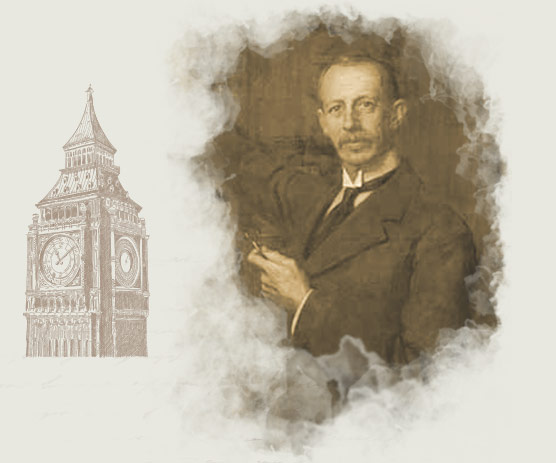
1899: John Murray (1851-1928), UK
John Murray IV took over the family publishing house founded in London in 1768 by John Murray (1737 – 1793). Murray IV was also a founding member of the Publishers’ Association and served as treasurer, vice-president and president.
More information:
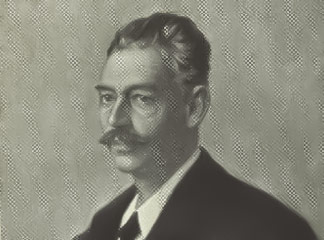
1901: Albert Brockhaus (1855-1921), Germany
Albert Brockhaus succeeded his father in running the dictionary publisher F.A. Brochkaus from 1881 – 1921.
He was also President of the German Publishers and Booksellers Association.
More information:
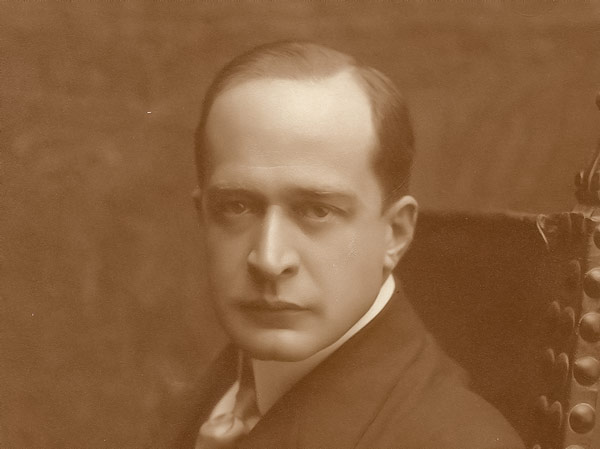
1906: Tito Ricordi (1865-1933), Italy
Tito Ricordi was a music publisher, and the director of Casa Ricordi, which was founded by his great grandfather and still exists today.
In 1889, having graduated in engineering, Ricordi focused on the family business, studying the economics of theatre and travelling widely to broaden his knowledge. In 1891 he introduced chromolithography and took over the management of Officine Ricordi, becoming director in 1912 when his father, Giulio, died.
Tito is considered the father of modern operatic direction and took Casa Ricordi to worldwide renown. He brought Madame Butterfly to the United States, where it was performed for six months, and organized Giacomo Puccini’s fêted trips to Buenos Aires and New York.
More information:
1908: José Lopez Ruiz (1875-1945), Spain
José Ruiz López was President of the Booksellers Association of Spain in 1911 and participated in the second National Assembly of publishers and booksellers in Valencia in 1911.
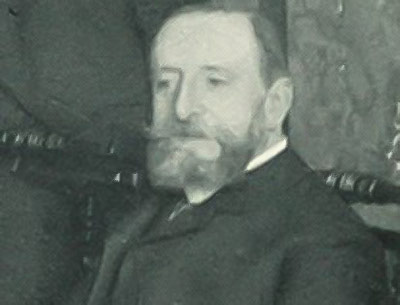
1910: Wilhelmus Petrus van Stockum (1848-1927), Netherlands
W. P. van Stockum Jr. entered the family publishing and bookselling business at 15 years old. After leaving the company he dedicated his time to a number of activities including the preparation of a book on 4 centuries of publishing in the Netherlands (La librairie, l’imprimerie et la presse en Hollande à travers quatre siècles) for the International Publishers Congress in Amsterdam in 1910, which he presided over.
1913: Viktor Ranschburg (1862-1930), Austria–Hungary
Viktor Ranschburg studied the book trade at Baer & Co. in Frankfurt for four years before moving back to Budapest. In 1901, he represented the Hungarian book trade at the Leipzig International Publishing Congress as the general secretary of the Association of Hungarian Book Dealers. He held the positions of secretary and then general secretary of the Association of Hungarian Publishers and Book Dealers, and from 1906 to 1919 he was the vice–president.
More information:
1922: Wilhelmus Petrus van Stockum, Netherlands
See above
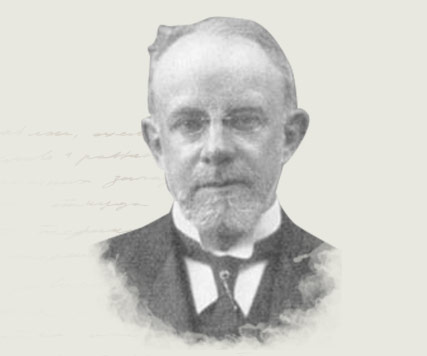
1927: Ove Tryde (1870-1956), Denmark
Ove Vilhelm Tryde was born in Copenhagen and from 1894-97 worked at bookstores in Berlin, Paris and London, thereby consolidating his excellent language skills. In 1897 he joined his father’s bookshop, becoming a co-owner in 1901 co-owner, and the sole owner from 1913 until the company’s cessation in 1938. From 1909 he was a delegate at the International Publishers Congress, and he played a role in the reconstruction of the Congress after the First World War.
He continued to be involved in publishing after World War II chairing the Danish Booksellers’ Association and writing articles about the book trade. He also wrote the history of the International Congress 1913-31, contributing a number of photographs, which was published independently in 1947.
More information:
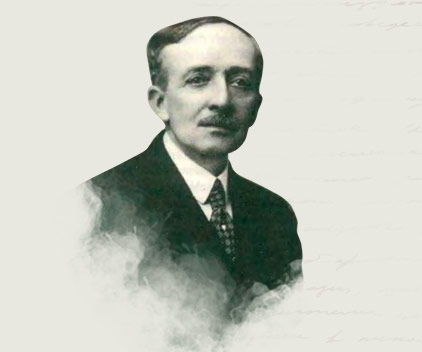
1931: Louis Hachette (1870-1941), France
Louis Hachette was the grandson of Louis Christophe François Hachette, founder of the Hachette bookshop. He was the son of Georges Hachette, who alongside his brother, Alfred, Louis Bréton and Emile Templier, inherited Hachette after its founder’s passing. Louis joined the company in 1893 and became an associate in 1898, and mainly dealt with illustrated books for children. He became President of the Cercle de la Librairie in 1914 and seems to have remained active during the war years, alongside René Fouret, to keep Hachette active. In 1917 he played a key role in the National Book Congress organized by the Cercle de la Librairie. He presided over the first International Publishers Congress after World War I in 1931 and continued contributing to the Congress until his last Congress in 1938.
More information:
Institut Memoires de l’édition contemporaine.
1933: Théophile Zech-Levie (1871-1944), Belgium
Alongside his brother, Paul, Théophile Zech–Levie was a director of the printer and publishing house Zech et Fils previously known as the Imprimerie Lelong. The publishing house, created in 1785, specialized in religious and scientific works which were exported across Europe. The Zech family took control of the publishing house in 1883. Théophile was a co–founder of the Syndicat des Editeurs Belges in 1935 (now the Association des Editeurs Belges: ADEB) alongside Ernest Vandevelde (see Emile Bruylant above).
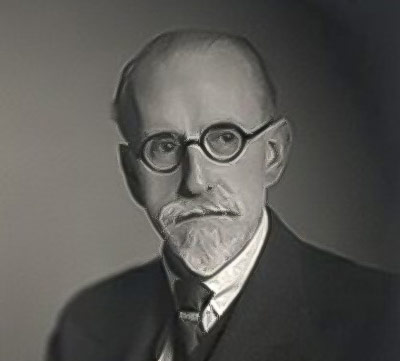
1936: Stanley Unwin (1884-1968) UK
Sir Stanley Unwin founded Allen & Unwin after buying a controlling interest in the firm George Allen and Sons in 1914. Unwin’s son, Rayner S. Unwin, and nephew, Philip, helped run the company, which published the works of Bertrand Russell, Arthur Waley, Roald Dahl, Lancelot Hogben, and Thor Heyerdahl. It became well known as J. R. R. Tolkien’s publisher, publishing The Hobbit in 1937, and its sequel The Lord of the Rings in 1954–1955. At the age of seventy–six he appeared as a witness for the defence in the Lady Chatterley trial in 1960.
More information:
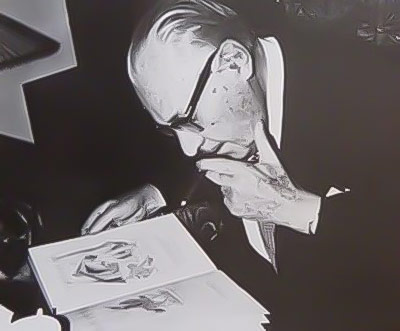
1938: Karl Baur (1898-1984), Germany
Initially trained as a bricklayer and architect, after serving in World War I Karl Bauer retrained as a bookseller and in 1926 joined the Callwey publishing house. He took control of the publishing house in 1930 following the death of Georg Callwey and went on to take seats in the German Publishers and Booksellers Association as well as the Booksellers Association. During the denazification, Baur was temporarily banned from working in the book industry but later re-established the Callwey publishing house, handing control to his wife and son in 1976.
More information:
1947: Stanley Unwin (1884-1968), UK
See above.
1954-1956: Gustav Keckeis (1884-1967), Switzerland
Gustav Keckeis became head of the Herder publishing house in Freiburg im Breisgau. After the National Socialists came to power, he moved to Zurich and in 1935 took over the management of the Benziger publishing house. From 1939 to 1941 Keckeis was President of the Swiss Booksellers and Publishers Association. Keckeis was also an author under the pen name Johannes Muron.
More information:
1956-1959: Antonio Vallardi (1882-1965), Italy
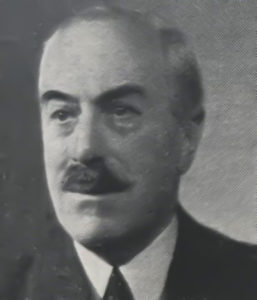 From the well–known Milan family of publishers, booksellers and printers that dates back to the 18th Century, Antonio Vallardi took part in the World Congress of Libraries and Bibliography in 1929 was a member of the Italian Libraries Association from 1931 until at least 1937 and remained involved in Lombardy regional library Committee until 1964. He became President of the Italian Publishers Association in 1946, a position he held for ten years.
From the well–known Milan family of publishers, booksellers and printers that dates back to the 18th Century, Antonio Vallardi took part in the World Congress of Libraries and Bibliography in 1929 was a member of the Italian Libraries Association from 1931 until at least 1937 and remained involved in Lombardy regional library Committee until 1964. He became President of the Italian Publishers Association in 1946, a position he held for ten years.
More information:
1959-1962: Fritz Ross (1889-1964), Austria
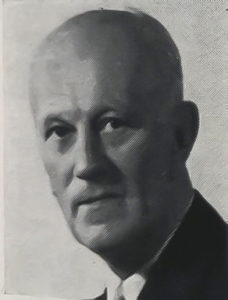 Fritz Ross started his career as junior partner at Ullstein AG in Berlin until 1934 (when the business, owned by the Jewish Ullstein family, was seized by the authorities and in 1937 renamed Deutscher Verlag. Ross founded an Ullstein publishing house in Vienna with his wife Hilda (née Ullstein) in May 1945, which brought out its own production and was merged with the Berlin house in 1954 with Ross becoming a member of the oversight board. He held the position of President of the Austrian Association of Booksellers.
Fritz Ross started his career as junior partner at Ullstein AG in Berlin until 1934 (when the business, owned by the Jewish Ullstein family, was seized by the authorities and in 1937 renamed Deutscher Verlag. Ross founded an Ullstein publishing house in Vienna with his wife Hilda (née Ullstein) in May 1945, which brought out its own production and was merged with the Berlin house in 1954 with Ross becoming a member of the oversight board. He held the position of President of the Austrian Association of Booksellers.
More information:
and
1962-1965: Santiago Salvat Espasa (1891-1971), Spain
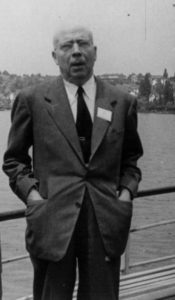 Son of publisher Manuel Salvat Xivixell, Santiago Salvat Espasa’s entry into publishing was a two–year trip around the America prepared by his older brother, Pau Salvat i Espasa, then in charge of the family publishing house. .
Son of publisher Manuel Salvat Xivixell, Santiago Salvat Espasa’s entry into publishing was a two–year trip around the America prepared by his older brother, Pau Salvat i Espasa, then in charge of the family publishing house. .
When Pau Salvat i Espasa died in 1923 he took over Editorial Salvat. During his career he presided over the Spanish Publishers Guild, the Institut Català de les Arts del Llibre and the Book Chamber of Barcelona.
More information:
1965-1968: Storer Lunt (1897-1977), USA
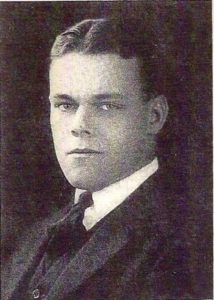 Storer Boardman Lunt joined W.W. Norton and Company as a sales manager in 1930. After founder William Warder Norton’s death in 1945, Norton became employee–owned with Lunt the first president and later chairman of the board. Lunt’s obituary in the New York Times noted the exceptionally strong relationships he built with his authors. Lunt was a president of the American Book Publishers Council and guided its amalgamation with the Association of American Publishers.
Storer Boardman Lunt joined W.W. Norton and Company as a sales manager in 1930. After founder William Warder Norton’s death in 1945, Norton became employee–owned with Lunt the first president and later chairman of the board. Lunt’s obituary in the New York Times noted the exceptionally strong relationships he built with his authors. Lunt was a president of the American Book Publishers Council and guided its amalgamation with the Association of American Publishers.
More information:
1968-1972: Ernest Lefebvre (1905-1980), Netherlands
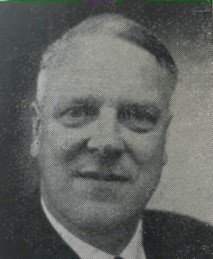 Ernest Lefebvre’s training to work in publishing took him from the Netherlands to Germany, Austria and France. He was a director of H D Tjeenk Willink & Zoon in Haarlem from 1938 and in 1952 became President of the Royal Dutch Publishers Union (Koninklijke Nederlandsche Uitgeversbond), the predecessor of today’s Mediafederatie.
Ernest Lefebvre’s training to work in publishing took him from the Netherlands to Germany, Austria and France. He was a director of H D Tjeenk Willink & Zoon in Haarlem from 1938 and in 1952 became President of the Royal Dutch Publishers Union (Koninklijke Nederlandsche Uitgeversbond), the predecessor of today’s Mediafederatie.
More information:
Who’s Who in Publishing 1956
1972-1976: John Boon (1908-1996), UK
 John Boon took over the publishing house Mills & Boon, co–founded by his father, Charles, which specialized in romantic fiction. He served as President of both the Publishers’ Association and the International Publishers’ Association, as chairman of the publishers’ advisory panel of the British Council, and as president of the Society of Bookmen and director of Book Tokens.
John Boon took over the publishing house Mills & Boon, co–founded by his father, Charles, which specialized in romantic fiction. He served as President of both the Publishers’ Association and the International Publishers’ Association, as chairman of the publishers’ advisory panel of the British Council, and as president of the Society of Bookmen and director of Book Tokens.
More information:
1976-1980: Per A. Sjögren (1921-1996), Sweden
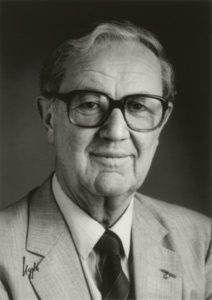 Per A. Sjögren was a Swedish publisher who started his career for Albert Bonniers Förlag before becoming the CEO of AB P.A. Sjögren in 1955. He joined AB Rabén & Sjögren bokförlag in 1969, where he rose to CEO (1970–1982) before becoming a partner and chairman of the board of Askelin & Hägglund Förlag AB 1983–1987.
Per A. Sjögren was a Swedish publisher who started his career for Albert Bonniers Förlag before becoming the CEO of AB P.A. Sjögren in 1955. He joined AB Rabén & Sjögren bokförlag in 1969, where he rose to CEO (1970–1982) before becoming a partner and chairman of the board of Askelin & Hägglund Förlag AB 1983–1987.
He was chairman of the Swedish Publishers’ Association 1980–1984 and later chairman of the Association for Book Crafts among many other positions.
More information:
Photo rights: Getty images
1980-1984: Manuel Salvat Dalmau (1925-2012), Spain
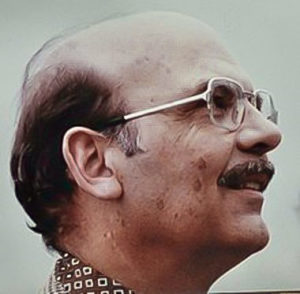 Son of former IPA President, Santiago Salvat Espasa, Manuel Salvat Dalmau joined the family business, Editorial Salvat, in the late 1940s, becoming manager. The company specialised in dictionaries and medical works and later encyclopedias. The Editorial Salvat was also a pioneer in incorporating CDs and cassettes. In the late 1980s the Salvat Group was purchased by the French multinational Hachette.
Son of former IPA President, Santiago Salvat Espasa, Manuel Salvat Dalmau joined the family business, Editorial Salvat, in the late 1940s, becoming manager. The company specialised in dictionaries and medical works and later encyclopedias. The Editorial Salvat was also a pioneer in incorporating CDs and cassettes. In the late 1980s the Salvat Group was purchased by the French multinational Hachette.
More information:
1984-1988: Johan Somerwil (1926-2009), Netherlands
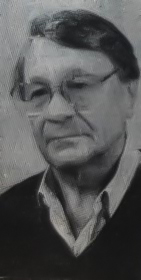 Johan Somerwil (1926–2009) joined Meulenhoff in 1943 later becoming Vice President and then President in 1971. He was also a board member of Kluwer and then Wolters Kluwer as well as being involved in the Comité van Importeurs van Boeken en Tijdschriften (CIBT, committee of book and magazine importers), the Uitgevers Distributie Centrum (UDC, publishers’ distribution centre) and the Uitgevers Verkoop Maatschappij (UVEMA, publishers’ vending company).
Johan Somerwil (1926–2009) joined Meulenhoff in 1943 later becoming Vice President and then President in 1971. He was also a board member of Kluwer and then Wolters Kluwer as well as being involved in the Comité van Importeurs van Boeken en Tijdschriften (CIBT, committee of book and magazine importers), the Uitgevers Distributie Centrum (UDC, publishers’ distribution centre) and the Uitgevers Verkoop Maatschappij (UVEMA, publishers’ vending company).
1988-1992: Andrew H. Neilly (1923-2025), USA
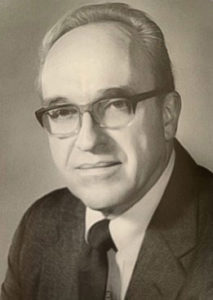 Andrew H. Neilly Jr joined John Wiley & Sons upon his graduation in 1947. Starting out as a traveler, he became an assistant sales manager, then manager of college sales before holding positions in advertising and marketing. In 1971 Andrew H. Neilly became Executive Vice President proceeding to become President, Chief Operating Officer and finally, in 1979, Chief Executive Officer—a post he held until 1988. Mr Neilly also served as chairman of the Association of American Publishers and was the first chairman of the Book Industry Study Group.
Andrew H. Neilly Jr joined John Wiley & Sons upon his graduation in 1947. Starting out as a traveler, he became an assistant sales manager, then manager of college sales before holding positions in advertising and marketing. In 1971 Andrew H. Neilly became Executive Vice President proceeding to become President, Chief Operating Officer and finally, in 1979, Chief Executive Officer—a post he held until 1988. Mr Neilly also served as chairman of the Association of American Publishers and was the first chairman of the Book Industry Study Group.

1992-1996: Fernando Guedes (1929-2016), Portugal
Fernando Guedes chaired the Associaçao Portuguesa de Editores e Livreiros (APEL–1969–1972 and 1983– 1987) and was the last President of the predecessor of the Federation of European Publishers (FEP)–the GELC or the Groupement des Editeurs de Livres de la Communauté (1988–1990). He was a Cultural Advisor to the EEC from 1988 to 1991, and was a member of UNESCO’s Publications Committee.
More information:
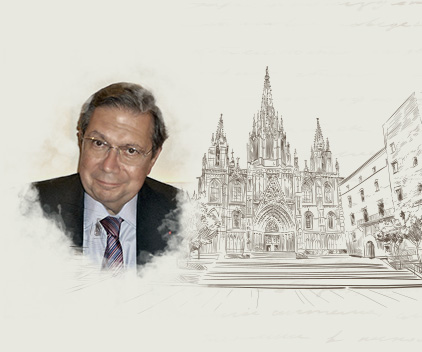
1996-2000: Alain Gründ (1939-2022), France
Alain Gründ took over his grandfather’s business, Editions Gründ, from his father in 1963. In addition to his activity as a business manager, Alain Gründ was president of the National Publishing Union (1985–91), then of the Federation of European Publishers (1990–92) and finally of the International Publishers Association (1996–2000).
More information:
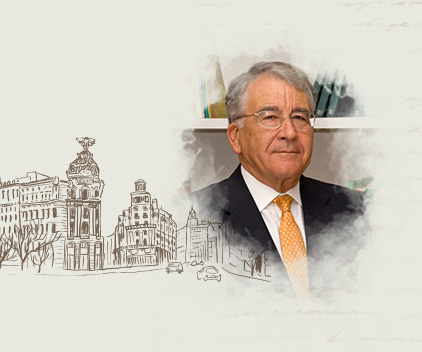
2000-2004: Pere Vicens Rahola (1939- ), Spain
Pere Vicens founded Editorial Vicens Vives in 1961. He was a member of the UNESCO Publications Council and a key architect of the UNESCO World Book Capital Cities programme.
More information:
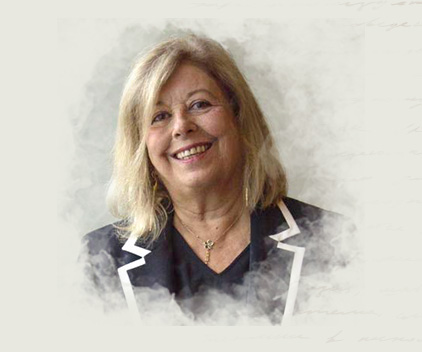
2004-2008: Ana María Cabanellas (1945- ), Argentina
Ana María Cabanellas began her career as a lawyer and notary before founding the family–owned publishing company of law books Editorial Heliasta as a partner. In 1979, Ms Cabanellas became President of Editorial Claridad, which specializes in dictionaries, as well as fiction, philosophy and history. In 2006, Ms Cabanellas founded UnaLuna, which publishes children’s books and in 2018 Tobogán that publishes children activity books.
Ms Cabanellas has been extremely active in industry associations as President of CADRA (Argentina’s RRO), President of the Cámara Argentina del Libro, President of GIE, and President of IPA from 2004–2008. She still works with these associations.

2008-2010: Herman Spruijt (1949- ), Netherlands
Herman P. Spruijt has been involved in publishing since 1974 holding key positions in both national and international publishing.
He started as an editor with one of the Kluwer titles, worked in their printing industries and finally became a science publisher with Martinus Nijhoff (later Kluwer Academic). He joined Elsevier Science Publishers in 1987 where in 1995 he was appointed as the Chairman and CEO of Elsevier Science and on the board of ReedElsevier.
He served, amongst other positions in the publishing industry, as a Treasurer of STM (Scientific, Technical and Medical publishers, 1993–1999), on the board of ICSTI (International Council for Scientific and Technical Information) and in the Industry Advisory Committee of WIPO (the World Intellectual Property Organization, 1998–2003).
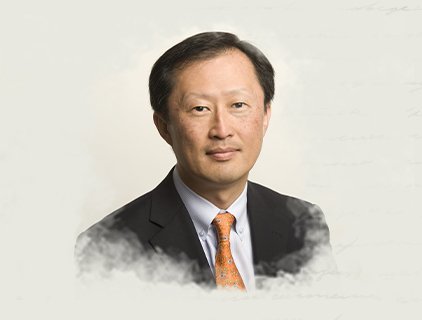
2010-2014: YoungSuk ‘YS’ Chi (1961- ), USA
Youngsuk ‘YS’ Chi is an international businessman and a global thought leader in the publishing, education and information solutions industries. As Chairman of Elsevier, he works directly with key stakeholders in government, academia and industry. In his role as Director of Corporate Affairs for RELX, Elsevier’s parent company, he is responsible for government affairs, corporate communications and corporate responsibility across all four of the group’s market segments. He is also President of the Elsevier Foundation and serves on its Board of Directors.
More information:
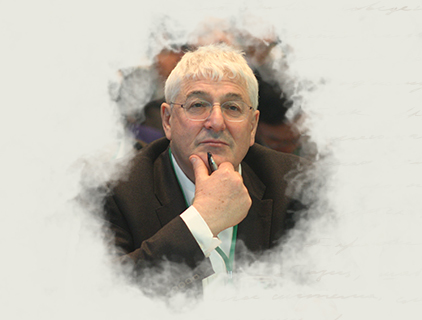
2015-2016: Richard Charkin (1949- ), UK
Richard Charkin has held executive positions at Pergamon Press, Oxford University Press, Reed International/Reed Elsevier and Current Science Group, is the former Chief Executive of Macmillan Publishers Limited and Executive Director of Verlagsgruppe Georg von Holtzbrinck. He was Executive Director of Bloomsbury from 2007 to 2018 and is currently President of Bloomsbury China and of John Wisden. He serves on the International Advisory Board of the Frankfurt Book Fair and the Editorial Board of Logos. He has founded and manages Mensch Publishing.

2017-2018: Michiel Kolman (1963- ), Netherlands
Dr Michiel Kolman is Senior VP of Information Industry Relations and Academic Ambassador at Elsevier. He is Past President of the International Publishers Association and Chair of the IPA’s Inclusive Publishing and Literacy Committee. Michiel Kolman has worked at Elsevier since 1995, launching the online journal New Astronomy, leading academic relations and more recently being the Executive sponsor of Elsevier Pride.
More information:

2019-2020: Hugo Setzer (1965- ), Mexico
Hugo Setzer served on IPA’s Executive Committee from 2004 to 2010 and from 2013 to 2020. He is both Mexican and German and since 1990 he has been the CEO of Manual Moderno, which is a leading publishing house in the fields of medicine and psychology in Spanish language, based in Mexico City. He has been on two occasions Vice–President of the Mexican Publishers Association, CANIEM, was founding President of the Mexican CMO, CeMPro, and has served on the executive boards of the STM Association, IFRRO and the advisory board of the Accessible Books Consortium.

2021-2022: Bodour Al Qasimi (1978- ), UAE
Sheikha Bodour bint Sultan Al Qasimi is the founder and CEO of children’s publisher Kalimat Group, founder and chairperson of Kalimat Foundation, founder and past-president of the Emirates Publishers Association and founder and patron of the UAE Board on Books for Young People.
